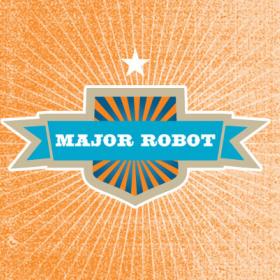 Support for Drupal 7 is ending on 5 January 2025—it’s time to migrate to Drupal 10! Learn about the many benefits of Drupal 10 and find migration tools in our resource center.
Support for Drupal 7 is ending on 5 January 2025—it’s time to migrate to Drupal 10! Learn about the many benefits of Drupal 10 and find migration tools in our resource center.The MongoDB module suite for Drupal 10 stores data in MongoDB instead of the default Drupal SQL database.
For Drupal 10 site administrators
It means a faster Drupal and better logs, without a line of code.
- it provides a more usable user interface to access logs, and a faster database logging than core, without the complexities associated with external logging mechanisms like the Elastic Stack (BELK).
- it provides a faster implementation of the Drupal Key-Value store and Queue API
- overall, it provides a simple way to reduce the load on your SQL database server, without needing complex configuration or having to write a single line of code.
For Drupal 10 project developers
It means easy project development using MongoDB.
- A Drupal-standard API to access the features in the MongoDB library using database-style aliases, providing Symfony factory services to access MongoDB instances even on separate clusters from these aliases, just like standard Drupal SQL databases.
- A PSR-3 implementation, available both as a Drupal standard backend for the centralized Drupal 10 logger system, and as a dedicated MongoDB-only logger for special situations
- A MongoDB backend for the Drupal key-value API.
- Helpers around the compatibility breaks in the MongoDB PHP library.
- Troubleshooting and utility commands for both Drush 12 and 11, usable as examples to build bespoke commands.
- A complete redacted documentation details each module, and includes an example test implementation to show how to write Unit, Kernel, and Functional tests that will set up and clear MongoDB databases automatically, just like those built for SQL code.
For Drupal 10 contributors
It also makes contribution easy.
- Built on the current standard
mongodbPHP extension andmongodb/mongodbhigh-level PHP library. No more Drupalisms: just dependency-injected Symfony code like one would find in a pure Symfony project. - Continuous integration built on Drupal GitlabCI allows testing of merge requests.
- Live support is available on Drupal Slack
#mongodbchannel.
Which release should I use?
- Drupal 10.x: 8.x-2.1 for production or 8.x-2.x dev for leading edge
- Drupal 7.x : 7.x-1.0-rc3. But Drupal 7 practical EOL was on 2023-08-01, even if it still has some support until 2025-02-05
Unsupported versions
- Drupal 9.x, EOL 2023-11-01 : 8.x-2.1-alpha2.
- Drupal 8.x, EOL 2021-11-02 : 8.x-2.1-alpha1.
- Drupal 8 NoSQL distribution.
- Drupal 7
- Drupal 6 / Pressflow 6
Supporting organizations:
Project information
Seeking co-maintainer(s)
Maintainers are looking for help reviewing issues.- Module categories: Developer Tools, Performance, Integrations
- Ecosystem: MongoDB
396 sites report using this module
- Created by Damien Tournoud on , updated
Drupal 10 is here!
Compatible with the Drupal 10 since 8.x-2.1-alpha2.
Stable releases for this project are covered by the security advisory policy.
Look for the shield icon below.
Releases
8.x-2.1
 released 17 October 2023
released 17 October 2023
Works with Drupal: ^8 || ^9 || ^10
✓ Recommended by the project’s maintainer.
Drupal 10 new stable release, adding the Queue API provider
Install:
Development version: 8.x-2.x-dev updated 24 Oct 2023 at 09:22 UTC
7.x-1.0-rc3
released 28 August 2022
Works with Drupal: 7.x
✓ Recommended by the project’s maintainer.
Tag long-stable dev HEAD as a RC
Development version: 7.x-1.x-dev updated 26 Apr 2020 at 18:29 UTC






















